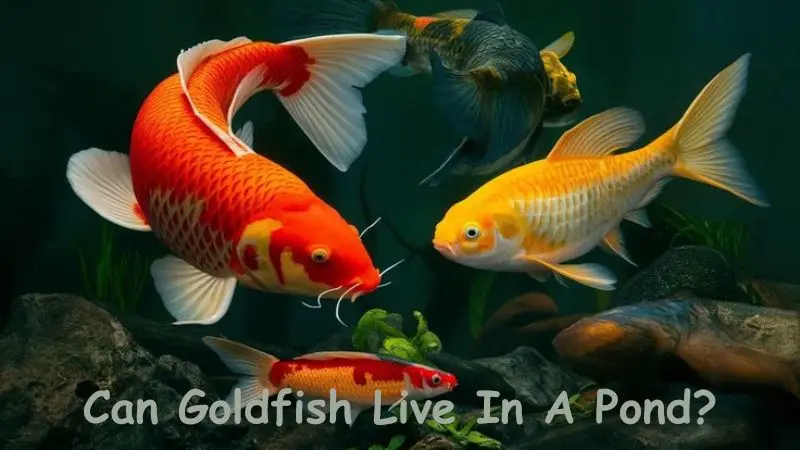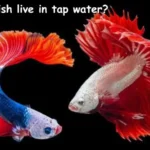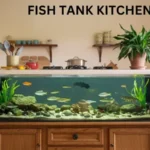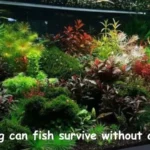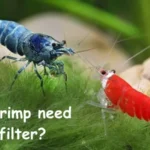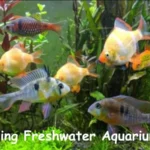fish farming
Can Goldfish Live In A Pond?
The iconic goldfish, with its vibrant colors and graceful movements, is a beloved pet for many. But while they are often seen in small bowls and tanks, a question arises: can goldfish live in a pond? The answer, surprisingly, is not a simple yes or no. While goldfish can indeed survive in a pond environment, several factors must be considered to ensure their well-being and longevity. This essay of fishtankmagic.com will delve into the intricacies of goldfish pond keeping, exploring the advantages and disadvantages, essential considerations for successful pond integration, and the potential challenges that may arise.
The Allure of Pond Life
For goldfish, a pond offers a significant upgrade from the confines of a bowl or tank. The larger space allows for greater freedom of movement, natural behaviors like schooling and burrowing, and a more stimulating environment. The open water provides ample room for swimming, while the bottom of the pond can be decorated with rocks, plants, and other features for exploration and hiding. This natural setting can enhance the goldfish’s quality of life, promoting both physical and mental well-being.
Essential Considerations for Goldfish Pond Keeping
While the idea of a pond may seem idyllic, it’s crucial to understand the specific requirements for goldfish to thrive in this environment. Several key factors must be carefully considered:
- Pond Size and Depth:
The size of the pond is paramount. Goldfish are active swimmers and require ample space to move freely. A general rule of thumb is to provide at least 100 gallons of water per goldfish. However, larger breeds like the Comet and Common goldfish may need even more space. The depth of the pond is also crucial, as goldfish need a deep area to escape from predators and extreme temperatures. A minimum depth of 3 feet is recommended.
- Water Quality:
Maintaining optimal water quality is essential for goldfish health. Ponds are naturally susceptible to fluctuations in pH, ammonia, and nitrates, which can be detrimental to fish. Regular testing and water changes are necessary to ensure a healthy environment. The use of a pond filter system is highly recommended to remove debris and maintain water clarity.
- Temperature Control:
Goldfish are cold-water fish, meaning they thrive in temperatures ranging from 50 to 72 degrees Fahrenheit. Ponds in temperate climates can naturally maintain these temperatures for most of the year. However, during extreme heat or cold, additional measures may be needed to regulate the water temperature. This could involve using pond heaters or chillers, depending on the climate.
- Plant Life and Shelter:
Plants play a vital role in the pond ecosystem. They provide oxygen, shade, and shelter for the goldfish. Native pond plants are ideal, as they are adapted to the local climate and water conditions. Additionally, providing hiding spots like rocks, logs, or artificial caves can offer refuge for the goldfish, especially during periods of stress or aggression.
- Predators and Competition:
Ponds can attract a variety of wildlife, some of which may pose a threat to goldfish. Herons, raccoons, and even large fish like bass can prey on goldfish. It is essential to take measures to protect the fish, such as installing netting over the pond or using deterrents. Additionally, introducing other fish species to the pond can lead to competition for resources and territorial disputes. Carefully consider the compatibility of different fish species before introducing them to the pond.
Advantages of a Pond Environment
Beyond the increased space and natural setting, a pond offers several advantages for goldfish:
- Natural Filtration: The pond’s ecosystem naturally filters water through plants, bacteria, and other organisms. This can reduce the need for frequent water changes and minimize the use of chemicals.
- Increased Oxygenation: Plants release oxygen into the water, providing a more oxygen-rich environment for the goldfish. This is particularly beneficial during hot weather when oxygen levels can decline.
- Natural Food Sources: Ponds can support a variety of natural food sources for goldfish, such as algae, insects, and small crustaceans. This can supplement their diet and provide a more stimulating foraging experience.
- Winter Hardiness: In temperate climates, goldfish can survive the winter in a pond. They will become dormant during colder months and rely on their fat reserves for energy. However, it’s essential to ensure the pond is deep enough to prevent freezing and that the water remains oxygenated.
Disadvantages of a Pond Environment
While pond life offers many benefits, there are also potential disadvantages:
- Maintenance: Maintaining a healthy pond requires ongoing effort. Regular water testing, cleaning, and filtration are essential. The pond may also need to be treated for algae and other nuisances.
- Predator Risk: As mentioned earlier, ponds attract predators that can pose a threat to goldfish. This requires vigilance and proactive measures to protect the fish.
- Environmental Factors: Ponds are susceptible to fluctuations in temperature, water levels, and other environmental factors. These changes can impact the goldfish’s health and well-being.
- Disease and Parasites: Ponds can be breeding grounds for diseases and parasites that can affect goldfish. Regular monitoring and preventative measures are crucial to minimize the risk of infection.
Can Goldfish Live in a Pond? A Balanced Perspective
The question of whether goldfish can live in a pond is not a simple yes or no. While they can survive and even thrive in a pond environment, it requires careful planning, maintenance, and a deep understanding of their needs. The advantages of a pond, such as increased space, natural filtration, and oxygenation, can significantly enhance the goldfish’s quality of life. However, the potential challenges, including predator risk, environmental fluctuations, and disease, must be carefully considered and addressed.
Conclusion
For goldfish owners seeking a more natural and spacious environment, a pond can be a rewarding option. However, it’s crucial to approach pond keeping with a balanced perspective, understanding both the advantages and disadvantages. By carefully considering the factors discussed in this essay and taking proactive steps to ensure their well-being, goldfish can enjoy a fulfilling and healthy life in a pond environment.

